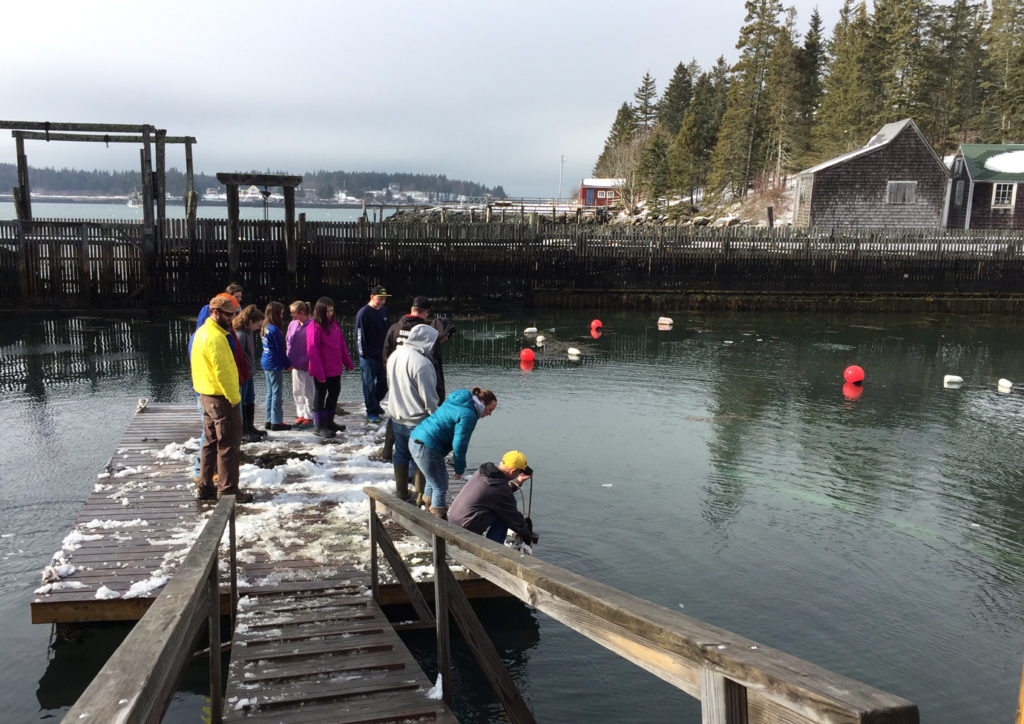When we talk about ‘fishing’ on Vinalhaven, most people think of catching lobsters, but in Port Clyde, fishing means more than that. A group of Vinalhaven students who are part of the Eastern Maine Skippers Program (EMSP) recently spent a day at Herring Gut Learning Center finding out about other fisheries and their place in the ocean food web.
Local fishermen Justin (Buzz) Libby and Randy Cushman were in shore that day and shared some of their past and present experiences as ground fishermen. The students, many of whom are lobstermen, were struck by the level of complexity and depth of knowledge that ground fishing requires, both in terms of ocean science and the rules and regulations.
“I didn’t realize how tricky the ground fishing industry is. The charts of the landings really show how much things have changed over time.” — Henry Noyes, Vinalhaven junior
After lunch (which included kelp and cucumber salad!), the focus shifted from fishing the waters to farming them through kelp aquaculture. A group of middle school students from Herring Gut who are growing kelp in an old lobster pound gave an excellent slide show explaining their project. They took us through the whole process, from the design of their farm and getting an LPA (Limited-Purpose Aquaculture License) to working in the nursery ‘growing ‘baby kelp’ to seeding and monitoring their kelp line and water quality testing. We heard about how they plan to dry their kelp once it is harvested and the different ways they use kelp – the most memorable of which was kelp-wrapped hot dogs – sounds yummy!

Middle school students present their work
The Vinalhaven students are in the early stages of their own kelp farming project – and have recently installed a kelp line in Carver’s Pond – with seeded kelp line grown by the middle school students (thank you Herring Gut!). We were quite impressed with what we saw at Herring Gut – both with the facilities and with the level of expertise that the middle school students have on the subject of kelp.
As we drove back to the ferry terminal in Rockland, the Vinalhaven students began to brainstorm about how we might address some of the questions that the visit raised. What are we going to do with our kelp? Where will we dry it? What will we make with it? It’s great to know that there is a group of experienced kelp-growing students in Port Clyde that we can call on for help and ideas.



